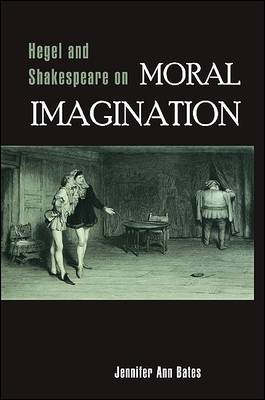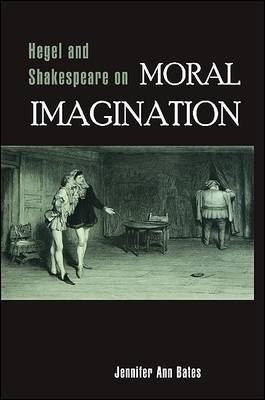
Door een staking bij bpost kan je online bestelling op dit moment iets langer onderweg zijn dan voorzien. Dringend iets nodig? Onze winkels ontvangen jou met open armen!
- Afhalen na 1 uur in een winkel met voorraad
- Gratis thuislevering in België vanaf € 30
- Ruim aanbod met 7 miljoen producten
Door een staking bij bpost kan je online bestelling op dit moment iets langer onderweg zijn dan voorzien. Dringend iets nodig? Onze winkels ontvangen jou met open armen!
- Afhalen na 1 uur in een winkel met voorraad
- Gratis thuislevering in België vanaf € 30
- Ruim aanbod met 7 miljoen producten
Zoeken
€ 57,95
+ 115 punten
Omschrijving
In this fascinating book, Jennifer Ann Bates examines shapes of self-consciousness and their roles in the tricky interface between reality and drama. Shakespeare's plots and characters are used to shed light on Hegelian dialectic, and Hegel's philosophical works on art and politics are used to shed light on Shakespeare's dramas. Bates focuses on moral imagination and on how interpretations of drama and history constrain it. For example: how much luck and necessity drive a character's actions? Would Coriolanus be a better example than Antigone in Hegel's account of the Kinship-State conflict? What disorients us and makes us morally stuck? The sovereign self, the moral pragmatics of wit, and the relationship between law, tragedy, and comedy are among the multifaceted considerations examined in this incisive work. Along the way, Bates traces the development of deleterious concepts such as fate, anti-Aufhebung, crime, evil, and hypocrisy, as well as helpful concepts such as wonder, judgment, forgiveness, and justice
Specificaties
Betrokkenen
- Auteur(s):
- Uitgeverij:
Inhoud
- Aantal bladzijden:
- 402
- Taal:
- Engels
Eigenschappen
- Productcode (EAN):
- 9781438432427
- Verschijningsdatum:
- 2/07/2011
- Uitvoering:
- Paperback
- Formaat:
- Trade paperback (VS)
- Afmetingen:
- 150 mm x 226 mm
- Gewicht:
- 544 g

Alleen bij Standaard Boekhandel
+ 115 punten op je klantenkaart van Standaard Boekhandel
Beoordelingen
We publiceren alleen reviews die voldoen aan de voorwaarden voor reviews. Bekijk onze voorwaarden voor reviews.











